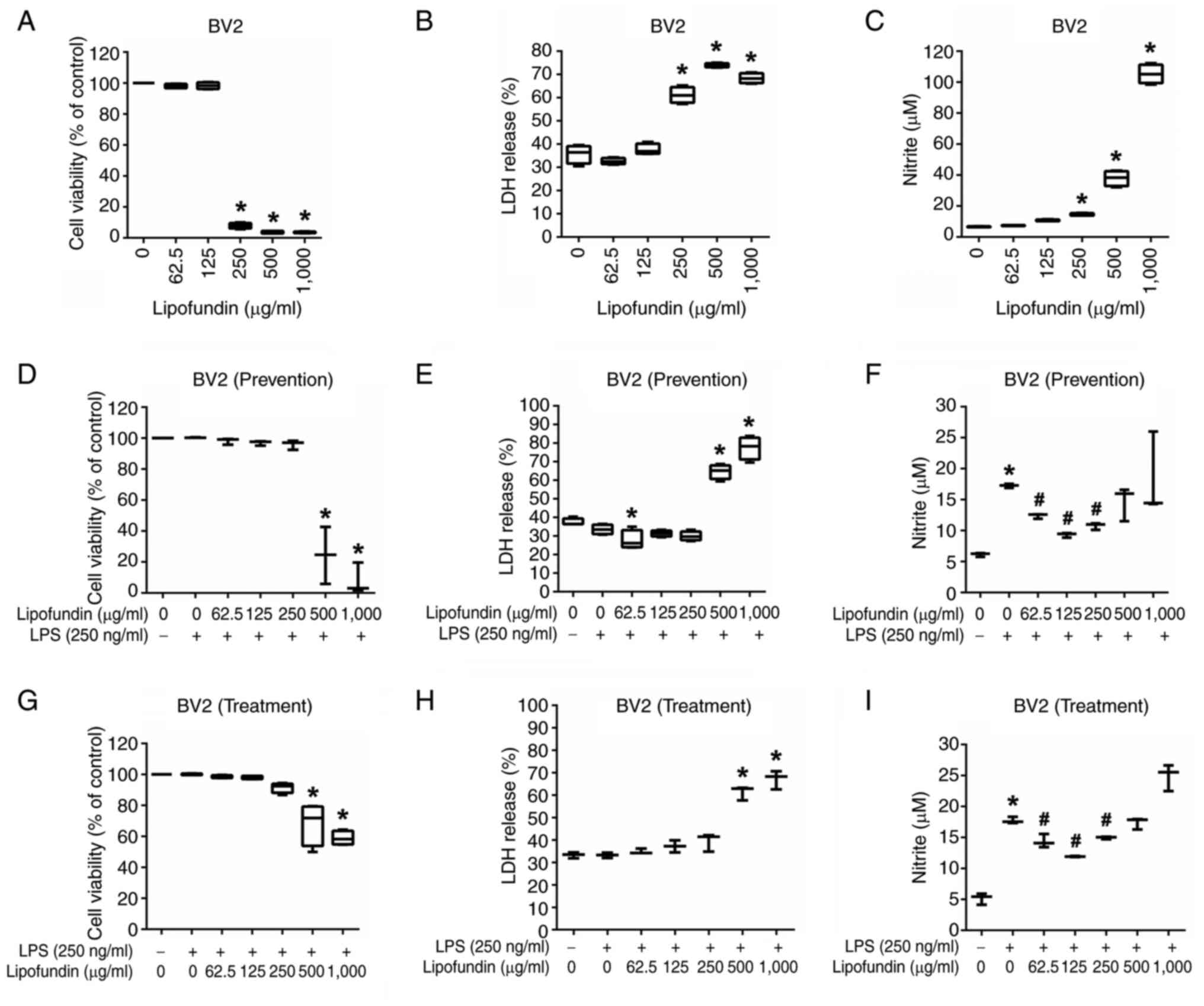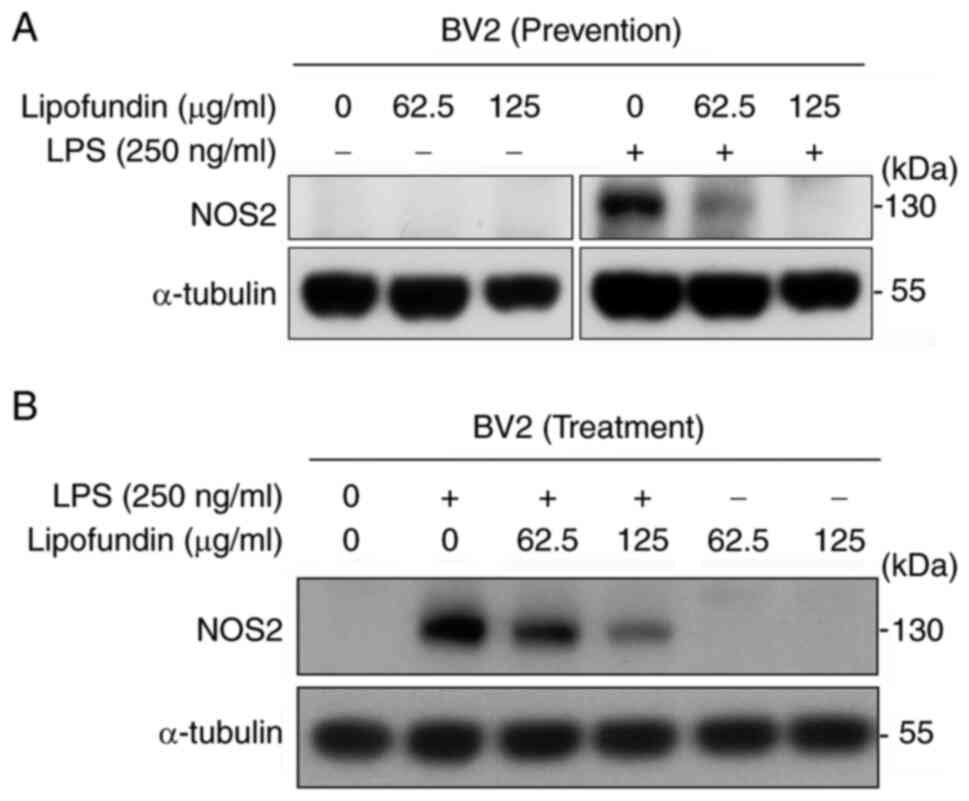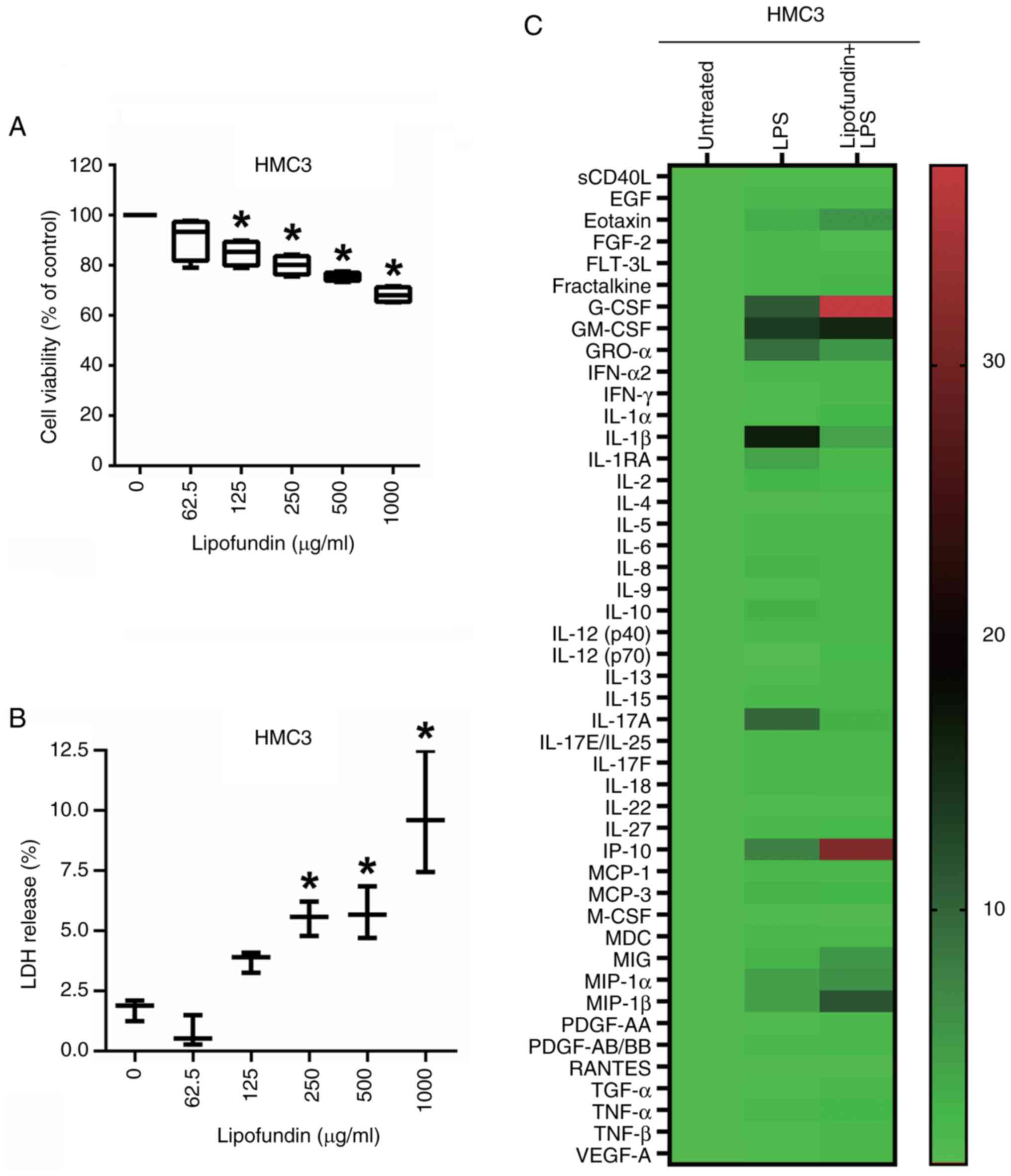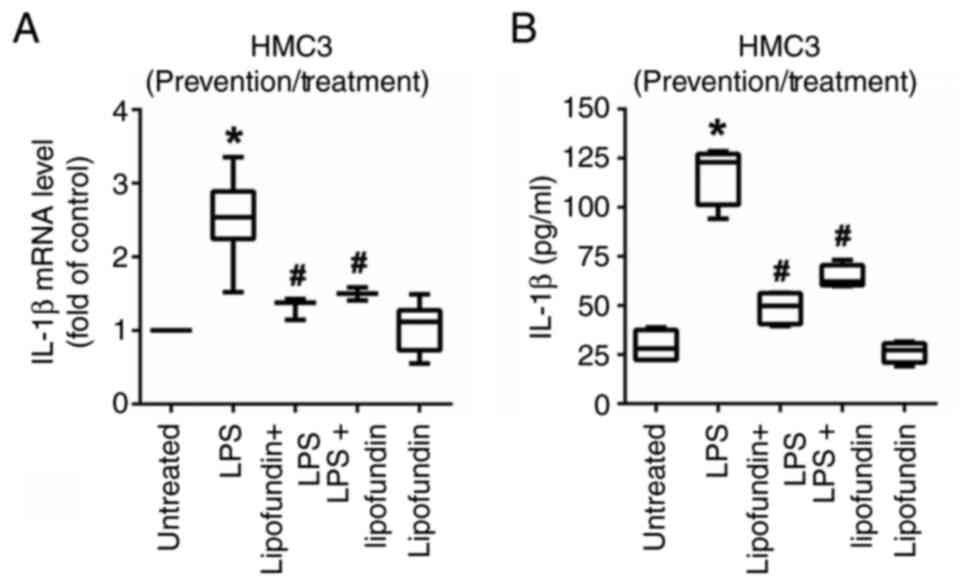|
1
|
Kaur G, Han SJ, Yang I and Crane C:
Microglia and central nervous system immunity. Neurosurg Clin N Am.
21:43–51. 2010.PubMed/NCBI View Article : Google Scholar
|
|
2
|
Spiteri AG, Wishart CL, Pamphlett R,
Locatelli G and King NJC: Microglia and monocytes in inflammatory
CNS disease: Integrating phenotype and function. Acta Neuropathol.
143:179–224. 2022.PubMed/NCBI View Article : Google Scholar
|
|
3
|
Muzio L, Viotti A and Martino G: Microglia
in neuroinflammation and neurodegeneration: From understanding to
therapy. Front Neurosci. 15(742065)2021.PubMed/NCBI View Article : Google Scholar
|
|
4
|
Qiu M, Xu E and Zhan L: Epigenetic
regulations of microglia/macrophage polarization in ischemic
stroke. Front Mol Neurosci. 14(697416)2021.PubMed/NCBI View Article : Google Scholar
|
|
5
|
Scheiblich H, Trombly M, Ramirez A and
Heneka MT: Neuroimmune Connections in Aging and Neurodegenerative
Diseases. Trends Immunol. 41:300–312. 2020.PubMed/NCBI View Article : Google Scholar
|
|
6
|
Chen MS, Yang KS, Lin WC, Fang CL, Chen HF
and Sheu SM: Lipofundin mediates major inhibition of intravenous
propofol on phorbol myristate acetate and Escherichia coli-induced
neutrophil extracellular traps. Mol Biol Rep. 9:6517–6529.
2022.PubMed/NCBI View Article : Google Scholar
|
|
7
|
Chen MS, Tung YW, Hu CL, Chang HJ, Lin W
and Sheu SM: Three lipid emulsions reduce staphylococcus
aureus-stimulated phagocytosis in mouse RAW264.7 cells.
Microorganisms. 9(2479)2021.PubMed/NCBI View Article : Google Scholar
|
|
8
|
Chen MS, Lu PK, Lin WC, Shin HC, Sie SR
and Sheu SM: Lipofundin mediates the major inhibition of
intravenous propofol in IL-1β secretion and phagocytosis of
staphylococcus aureus-infected macrophages. Lipids. 55:45–52.
2020.PubMed/NCBI View Article : Google Scholar
|
|
9
|
Daniels MJ and Brough D: Unconventional
pathways of secretion contribute to inflammation. Int J Mol Sci.
18(102)2017.PubMed/NCBI View Article : Google Scholar
|
|
10
|
Turner MD, Nedjai B, Hurst T and
Pennington DJ: Cytokines and chemokines: At the crossroads of cell
signalling and inflammatory disease. Biochim Biophys Acta.
1843:2563–2582. 2014.PubMed/NCBI View Article : Google Scholar
|
|
11
|
Baker HN, Murphy R, Lopez E and Garcia C:
Conversion of a capture ELISA to a Luminex xMAP assay using a
multiplex antibody screening method. J Vis Exp.
4084:2012.PubMed/NCBI View
Article : Google Scholar
|
|
12
|
Livak KJ and Schmittgen TD: Analysis of
relative gene expression data using real-time quantitative PCR and
the 2(-Delta Delta C(T)) Method. Methods. 25:402–408.
2001.PubMed/NCBI View Article : Google Scholar
|
|
13
|
Lo J, Liu CC, Li YS, Lee PY, Liu PL, Wu
PC, Lin TC, Chen CS, Chiu CC, Lai YH, et al: Punicalagin Attenuates
LPS-Induced Inflammation and ROS Production in Microglia by
Inhibiting the MAPK/NF-κB Signaling Pathway and NLRP3 Inflammasome
Activation. J Inflamm Res. 15:5347–5359. 2022.PubMed/NCBI View Article : Google Scholar
|
|
14
|
Vinnars E and Wilmore D: Jonathan roads
symposium papers. History of parenteral nutrition. JPEN J Parenter
Enteral Nutr. 27:225–231. 2003.PubMed/NCBI View Article : Google Scholar
|
|
15
|
Williams JJ, Mayurasakorn K, Vannucci SJ,
Mastropietro C, Bazan NG, Ten VS and Deckelbaum RJ: N-3 fatty acid
rich triglyceride emulsions are neuroprotective after cerebral
hypoxic-ischemic injury in neonatal mice. PLoS One.
8(e56233)2013.PubMed/NCBI View Article : Google Scholar
|
|
16
|
Berressem D, Koch K, Franke N, Klein J and
Eckert GP: Intravenous treatment with a long-chain omega-3 lipid
emulsion provides neuroprotection in a murine model of ischemic
stroke - a pilot study. PLoS One. 11(e0167329)2016.PubMed/NCBI View Article : Google Scholar
|
|
17
|
Tanioka M, Park WK, Park J, Lee JE and Lee
BH: Lipid emulsion improves functional recovery in an animal model
of stroke. Int J Mol Sci. 21(7373)2020.PubMed/NCBI View Article : Google Scholar
|
|
18
|
Zendedel A, Habib P, Dang J, Lammerding L,
Hoffmann S, Beyer C and Slowik A: Omega-3 polyunsaturated fatty
acids ameliorate neuroinflammation and mitigate ischemic stroke
damage through interactions with astrocytes and microglia. J
Neuroimmunol. 278:200–211. 2015.PubMed/NCBI View Article : Google Scholar
|
|
19
|
Chen X, Wu S, Chen C, Xie B, Fang Z, Hu W,
Chen J, Fu H and He H: Omega-3 polyunsaturated fatty acid
supplementation attenuates microglial-induced inflammation by
inhibiting the HMGB1/TLR4/NF-κB pathway following experimental
traumatic brain injury. J Neuroinflammation. 14(143)2017.PubMed/NCBI View Article : Google Scholar
|
|
20
|
Baazm M, Behrens V, Beyer C, Nikoubashman
O and Zendedel A: Regulation of inflammasomes by application of
omega-3 polyunsaturated fatty acids in a spinal cord injury model.
Cells. 10(3147)2021.PubMed/NCBI View Article : Google Scholar
|
|
21
|
Zhao T, Ma D, Mulati A, Zhao B, Liu F and
Liu X: Development of astaxanthin-loaded layer-by-layer emulsions:
physicochemical properties and improvement of LPS-induced
neuroinflammation in mice. Food Funct. 12:5333–5350.
2021.PubMed/NCBI View Article : Google Scholar
|
|
22
|
Della Giustina A, Goldim MP, Danielski LG,
Florentino D, Garbossa L, Joaquim L, Oliveira Junior AN, Mathias K,
Fileti ME, Zarbato GF, et al: Fish oil-rich lipid emulsion
modulates neuroinflammation and prevents long-term cognitive
dysfunction after sepsis. Nutrition. 70(110417)2020.PubMed/NCBI View Article : Google Scholar
|
|
23
|
Li P and Song C: Potential treatment of
Parkinson's disease with omega-3 polyunsaturated fatty acids. Nutr
Neurosci. 25:180–191. 2022.PubMed/NCBI View Article : Google Scholar
|
|
24
|
Wen YT, Huang TL, Huang SP, Chang CH and
Tsai RK: Early applications of granulocyte colony-stimulating
factor (G-CSF) can stabilize the blood-optic-nerve barrier and
ameliorate inflammation in a rat model of anterior ischemic optic
neuropathy (rAION). Dis Model Mech. 9:1193–1202. 2016.PubMed/NCBI View Article : Google Scholar
|
|
25
|
Wen Q, Kong Y, Zhao HY, Zhang YY, Han TT,
Wang Y, Xu LP, Zhang XH and Huang XJ: G-CSF-induced macrophage
polarization and mobilization may prevent acute graft-versus-host
disease after allogeneic hematopoietic stem cell transplantation.
Bone Marrow Transplant. 54:1419–1433. 2019.PubMed/NCBI View Article : Google Scholar
|
|
26
|
Rasouli B, Ghahari L, Safari M,
Shahroozian E and Naeimi S: Combination therapy of the granulocyte
colony stimulating factor and intravenous lipid emulsion protect
the hippocampus after global ischemia in rat: focusing on CA1
region. Metab Brain Dis. 35:991–997. 2020.PubMed/NCBI View Article : Google Scholar
|
|
27
|
Schäbitz WR, Kollmar R, Schwaninger M,
Juettler E, Bardutzky J, Schölzke MN, Sommer C and Schwab S:
Neuroprotective effect of granulocyte colony-stimulating factor
after focal cerebral ischemia. Stroke. 34:745–751. 2003.PubMed/NCBI View Article : Google Scholar
|
|
28
|
England TJ, Gibson CL and Bath PM:
Granulocyte-colony stimulating factor in experimental stroke and
its effects on infarct size and functional outcome: A systematic
review. Brain Res Rev. 62:71–82. 2009.PubMed/NCBI View Article : Google Scholar
|
|
29
|
Popa-Wagner A, Stöcker K, Balseanu AT,
Rogalewski A, Diederich K, Minnerup J, Margaritescu C and Schäbitz
WR: Effects of granulocyte-colony stimulating factor after stroke
in aged rats. Stroke. 41:1027–1031. 2010.PubMed/NCBI View Article : Google Scholar
|


















